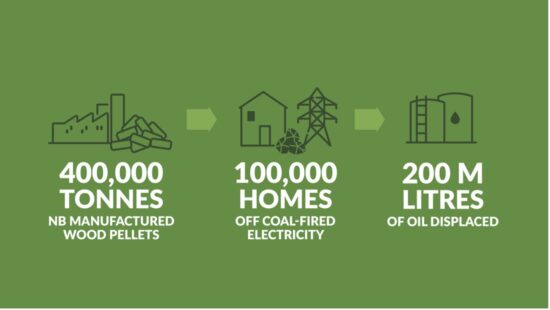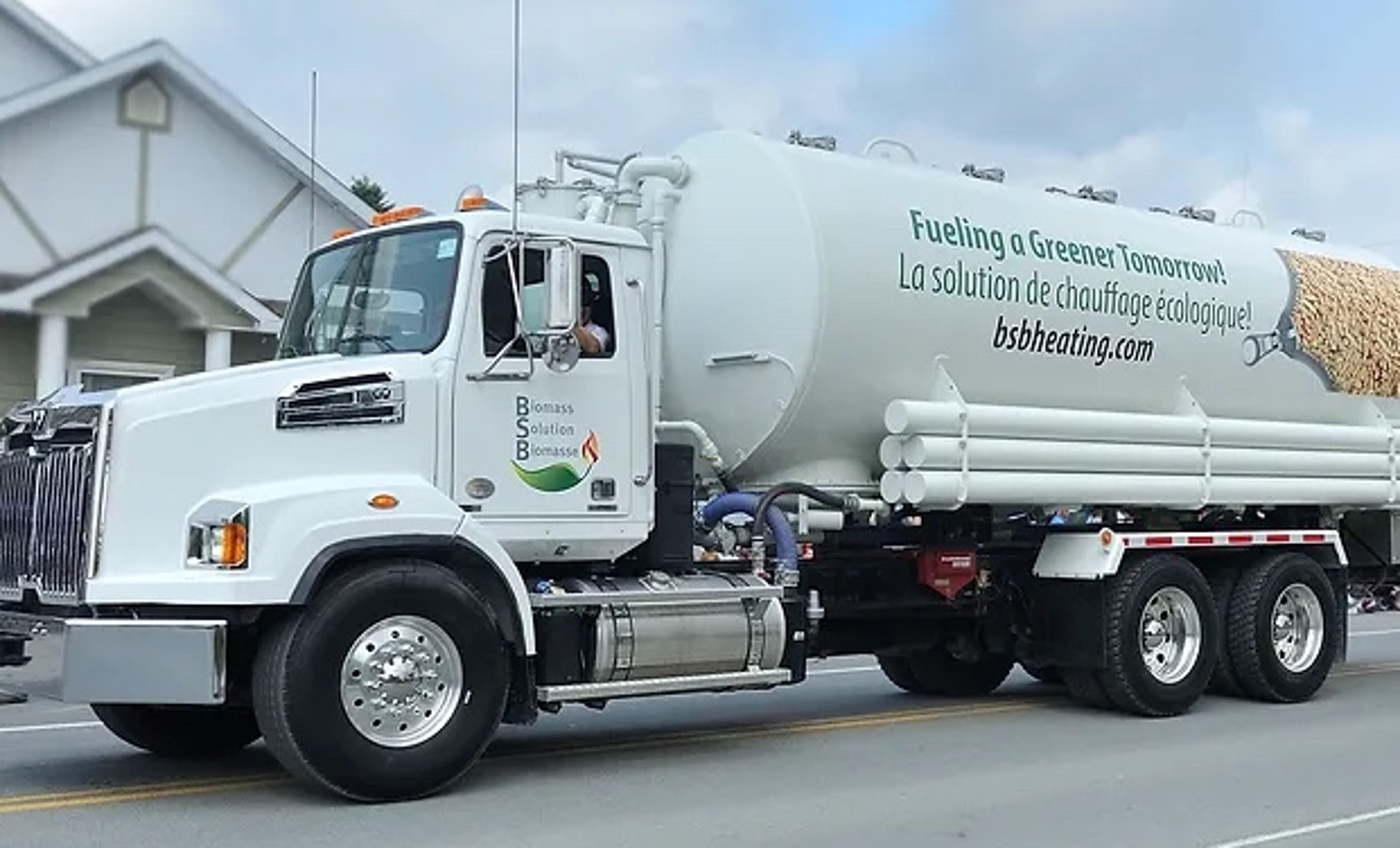Today wood pellets made solely from sawmilling and harvesting residuals are in demand worldwide. Seen as low carbon, efficient and renewable clean energy, wood pellets support shifting away from fossil fuels and reducing greenhouse gas (GHG) emissions.
I recently presented at the New Brunswick Energy Efficiency Conference, providing Canadian and international success stories and outlining how we can better utilize local wood pellets to support the province’s climate and energy goals and provide New Brunswick homes and commercial and institutional buildings with renewable, responsible and clean energy.
International Interest
Around three-quarters of the world’s renewable energy is from biomass. Forty-eight per cent of global wood pellet consumption is from residential and commercial buildings. From 2020-2021, Europe saw an 18 per cent increase in biomass consumption for homes and a 12.5 per cent increase in commercial applications. Europe is one of the main consumers of New Brunswick wood pellets – over 90 per cent of our production is exported due to little local demand and lagging public policy.
Wood Pellets: Good for New Brunswick
The wood pellet industry plays a vital role in the New Brunswick economy, supporting more than 625 direct and indirect jobs, procuring $60 million in local services and goods annually and investing over $100 million in capital expenditures.
New Brunswick has committed to end coal generation in 2030. Yet, more than 30 per cent of electricity generated in New Brunswick comes from imported fossil fuels such as coal, gas and heavy oil, most of which is burned in winter to meet electric heating needs.
The fact is, if we took the 400,000 tonnes of local wood pellets manufactured yearly at the five wood pellet plants in New Brunswick and used the fuel here, we could take 100,000 homes off coal-fired electricity and displace 200 million litres of oil.

Local Traction
The transition to biomass electric heating has already begun in New Brunswick, saving costs and reducing harmful GHG emissions.
The Université de Moncton, Shippagan Campus replaced three oil boilers with pellet boiler systems. The new boilers use 20 per cent less fuel even though the space grew. Emissions were reduced by 85 per cent, and the project is expected to have a payback in six to seven years.
In 2014-15, Grand Falls General Hospital saved 246,500 litres of oil and avoided 784 tonnes of CO2 emissions by replacing an oil heater boiler system with a biomass one.
Miramichi’s New Kings Street Elementary School put in a biomass boiler which avoided 74 metric tonnes of CO2, equal to planting 2,060 trees in the 2021-22 school year.
Good for Forests
Biomass from wood pellets isn’t just good for our homes, business and pocketbooks. Because bioenergy also provides a market for sawmill residuals and low-grade material, it also allows forests to be better managed for increased productivity, vigour, and health. Science shows that when you increase the demand for bioheat, you also contribute to better-managed forests and help tackle climate change, as shown in this recent video produced by the Wood Pellet Association of Canada (WPAC) and its Maritime members.
Since 1990, Sweden’s bioenergy consumption has doubled; its standing timber volume has increased by 40 per cent. This net annual increase in standing timbers has reduced Sweden’s GHG emissions by 70 per cent. The increase in standing timber volume is not despite bioenergy; it is because of bioenergy.
The Path Ahead
Inroads to encouraging biomass use have been made here in Canada. New Brunswickers can use many savings, rebate and retrofit programs for wood pellet heat for residential, commercial and industrial applications. There is still more that can be done across Canada. Bioheat public procurement could be accelerated through funding district energy feasibility studies for municipalities, and revising standards that restrict the required technology and equipment from entering Canada.
With the right investment, policy, and standard changes, we can make biomass mainstream in New Brunswick.
Jonathan Levesque is the general manager of Biomass Solutions Biomasse (BSB).
This article was originally published by Canadian Biomass, a national media brand providing coverage of the emerging biomass, bioenergy and bio-products markets. See CanadianBiomassMagazine.ca for more information.

